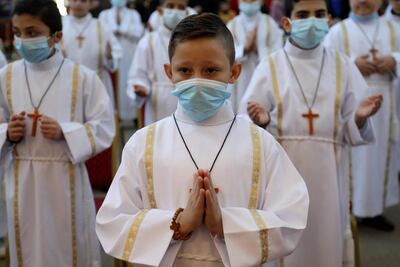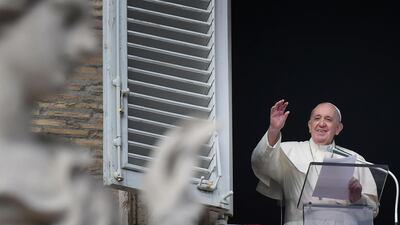On Monday the Vatican announced that Pope Francis aims to make the first ever papal visit to Iraq in March next year. The four-day itinerary includes the capital Baghdad and the capital of the Iraqi Kurdistan Region, Erbil.
Perhaps most symbolically, Pope Francis also plans to visit Mosul and Qaraqosh. Both cities have historic Christian congregations, which were devastated by ISIS’s takeover of the areas in 2014. The trip will also include the ancient city of Ur, purportedly the birthplace of the prophet Abraham, who is revered by all Abrahamic faiths.
Other popes have tried to visit Iraq, including former pope John Paul II in 2000. But so far circumstances, or the Vatican itself, have deemed all such attempts too difficult to see through.
It is unsurprising that Pope Francis, with his desire to go out into the world to build tolerance, has revived the idea. In February 2019, he made history with his visit to the UAE, the first visit by a pope to the Arabian Peninsula. In co-signing the “document on human fraternity for world peace and living together” with the Grand Imam of Al-Azhar Ahmed Al Tayyeb, Pope Francis signaled his commitment to bringing people together.

But he has also repeatedly highlighted Iraq's political situation as an issue of personal concern to him. In 2014, some were surprised by the force of his comments on the situation unfolding in the country, saying that it was “licit to stop unjust aggressors”. While he made clear he did not support “making war”, his answer to a question posed by a journalist showed he supported just use of force to protect the country and its citizens. In 2019, he told a group of leaders from Catholic aid agencies “I think constantly of Iraq – where I want to go next year – in the hope that it can face the future through the peaceful and shared pursuit of the common good on the part of all elements of society, including the religious, and not fall back into hostilities sparked by the simmering conflicts of the regional powers.” Earlier this year he also met President Barham Salih in the Vatican to discuss promoting stability and reconstruction in Iraq.
Pope Francis has also empowered Iraqi voices in the Vatican. In 2018 he appointed Chaldean Catholic Patriarch Louis Raphael I Sako, the president of Iraq’s Catholic bishops, to the senior Vatican position of cardinal. Cardinal Sako has described his appointment as being for the “whole of Iraq”.
This will also be true of the Pope’s upcoming visit in March. The well-being of Iraq’s Christian community is directly tied to that of all Iraq’s population. Cardinal Sako recognised this last year when he announced that his community would not hold public Christmas celebrations, in solidarity with Iraqis killed and wounded in anti-government protests at the time.
Iraq, like all nations, is suffering under the Covid-19 pandemic. But before this global catastrophe, all Iraqis were trying to recover from ISIS’s reign of terror, years of war, sanctions and internal strife. Therefore, the visit will not just be for the sake of the country’s Christians but for all Iraqis, bringing them together around Pope Francis, an internationally recognised symbol of peace and tolerance.
In 2015 the Pope made a statement, which for many has come to define his papacy, saying the Catholic Church must “leave her four walls” and go out to those on the “peripheries”. He was also the first pope in history to choose the papal name Francis, after St Francis of Assisi, who in the Christian tradition is particularly associated with helping the poor and dispossessed. Despite the fact many will view this unprecedented trip as risky, given the current state of the pandemic and security situation in Iraq, it fits the mission of today’s papacy.


